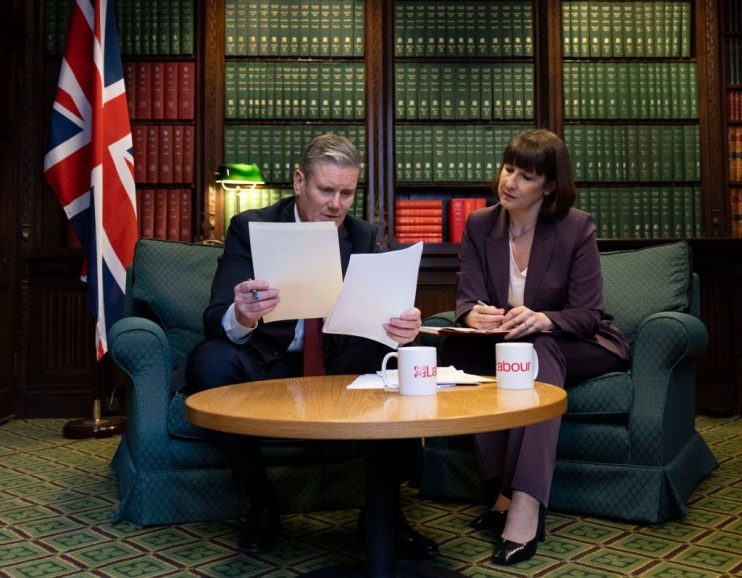Reeves planning national insurance on employer pension contributions, as workers spared
Rachel Reeves is planning to impose national insurance on employers’ pension contributions in next week’s Budget, according to reports.
The move, first reported by the Times, would raise £15.4bn, which would go a long way to filling the £40bn which Reeves hopes to raise through a combination of tax rises and spending cuts.
However, public sector workers will be exempted from the change, because government departments would have to make significant cuts to their budgets to fund the move.
This reimbursement will cost the government £5bn, according to the Times.
Rumours about a possible hike to employers’ national insurance have gathered steam as the Budget approaches.
Labour’s manifesto ruled out increasing taxes on working people, which includes income tax, national insurance and VAT. But the government has refused to confirm whether the national insurance pledge includes both employee and employer national insurance.
Under current rules, employers do not pay national insurance on pension contributions they make for their employers as part of a salary sacrifice scheme. The relief is designed to encourage pension savings.
Experts have warned that removing the relief could undermine these schemes and make private-sector firms less willing to offer generous pension packages.
“Faced with rising costs, employers with more generous contribution policies going beyond the government-mandated, basic contribution rates may be forced to review these policies, undermining people’s ability to achieve a comfortable retirement,” Felicia Hjertman, boss of investment platform Tillit said.
Business groups have also previously warned that removing the relief would put up the cost of employment, particularly for small businesses.
Writing in the Times, Stuart Machin, chief executive of Marks & Spencer, warned that the government should not hike national insurance on businesses.
Though not specifically referring to the relief pension contributions, he still argued that raising national insurance was essentially a “tax on jobs”.
“Raising these taxes isn’t the hard decision, it’s the easy way out. It might improve the public finances in the short term, but it makes economic recovery harder and hits our customers and colleagues still struggling with the cost of living,” he wrote.
However, the Institute for Fiscal Studies (IFS) has argued that it would be “sensible” to remove the pension relief, describing it as “generous, opaque and poorly targeted”. However, it noted “Labour’s manifesto pledge not to increase NICs (national insurance) might make that difficult”.
The move is likely to form part of a broader set of tax rises, with the government likely to hike capital gains tax and close loopholes in the inheritance tax system.
